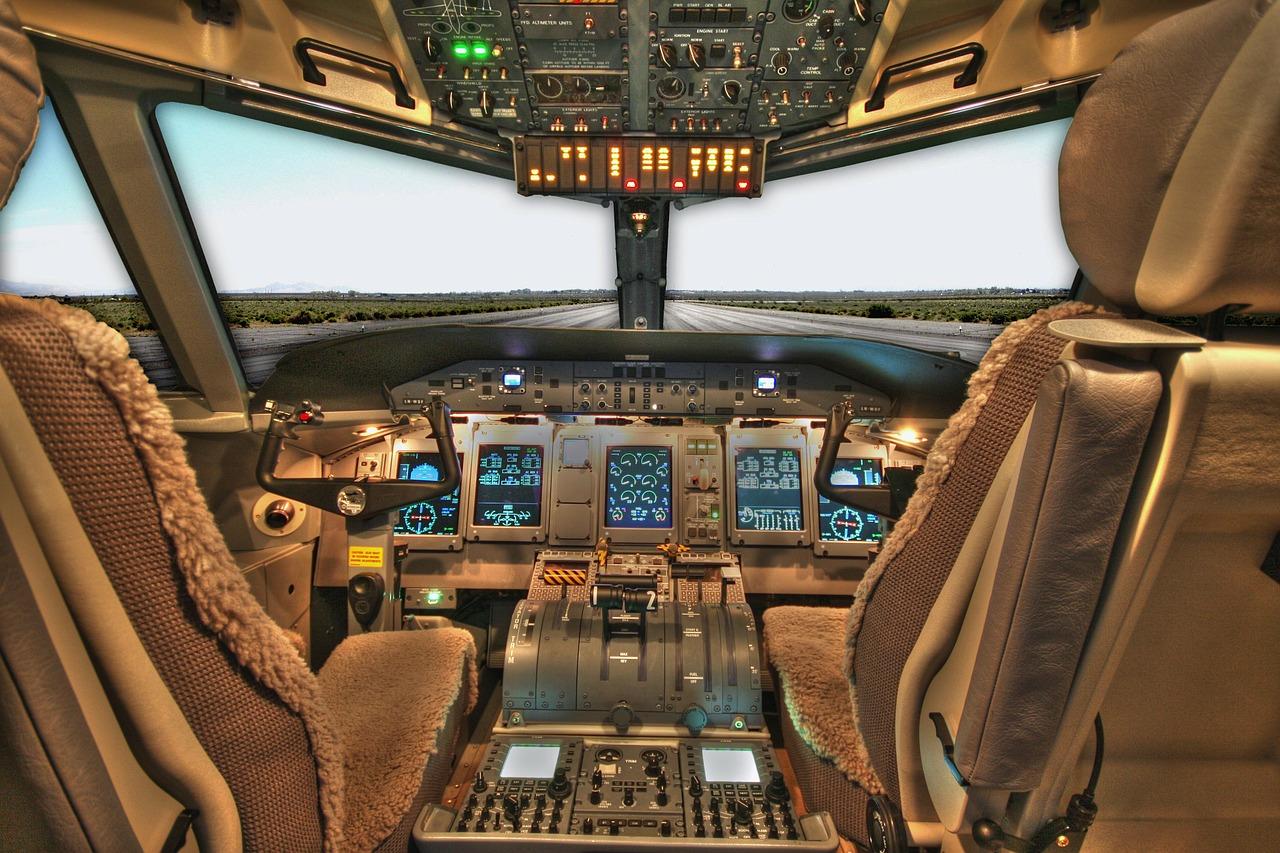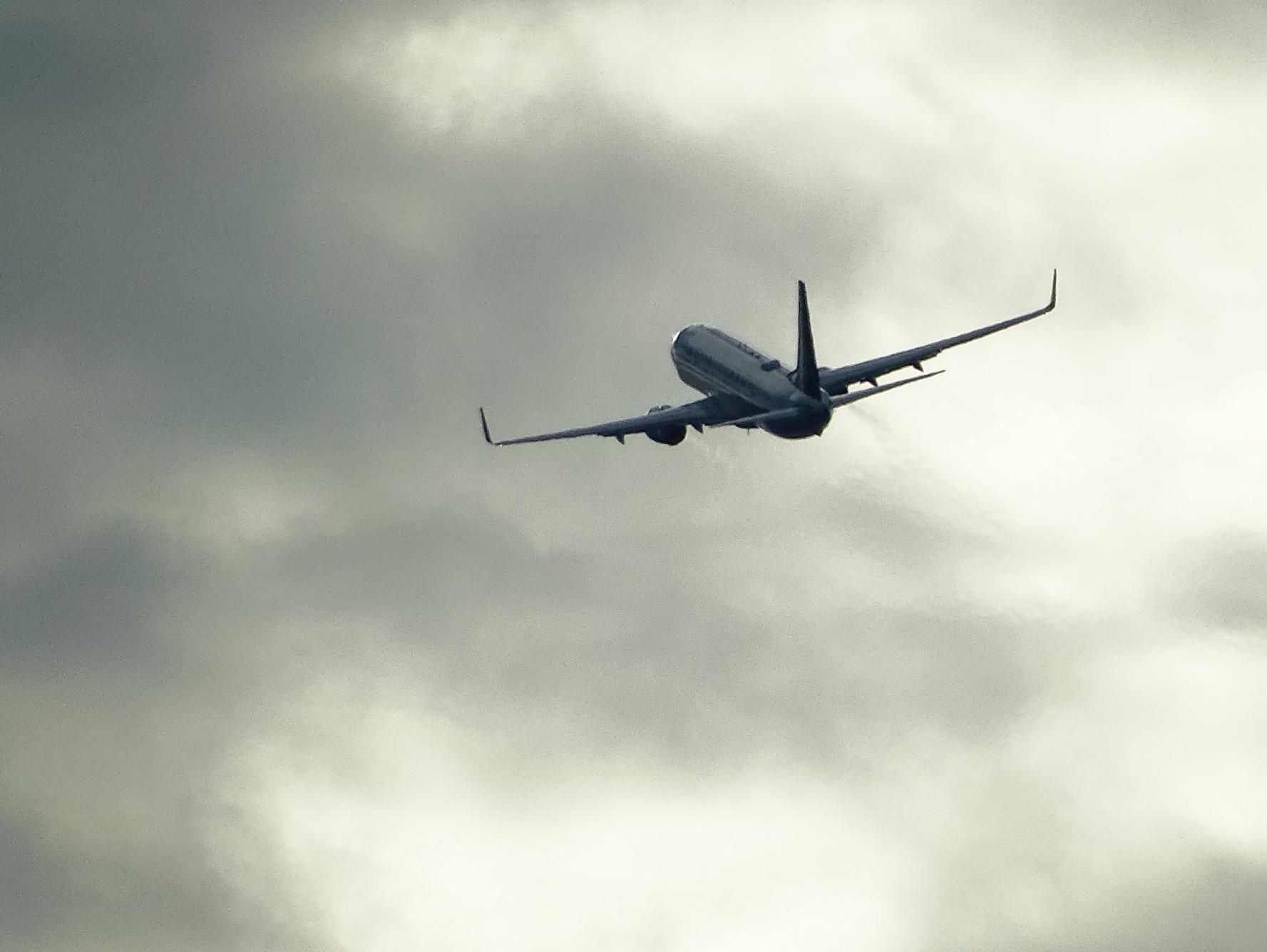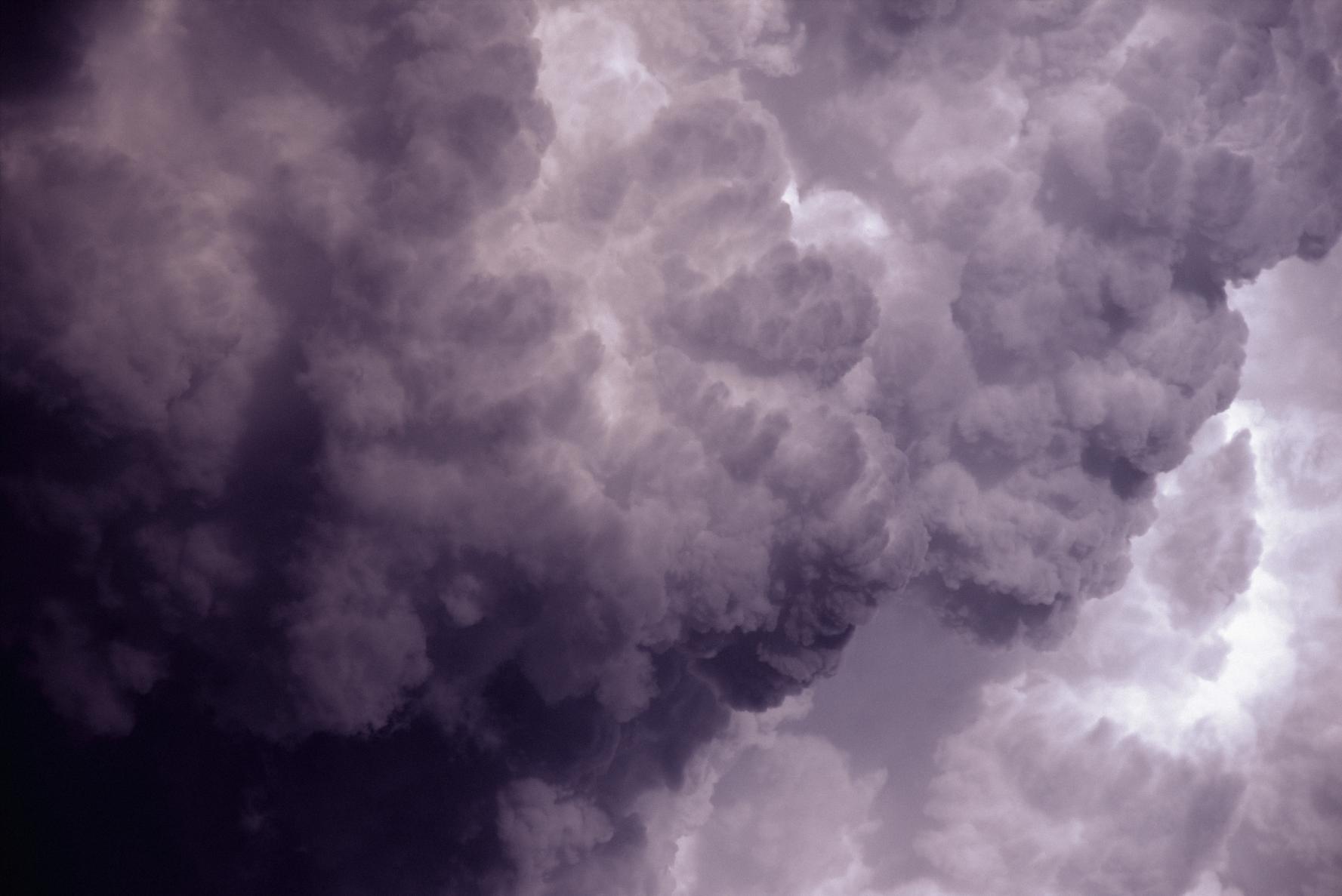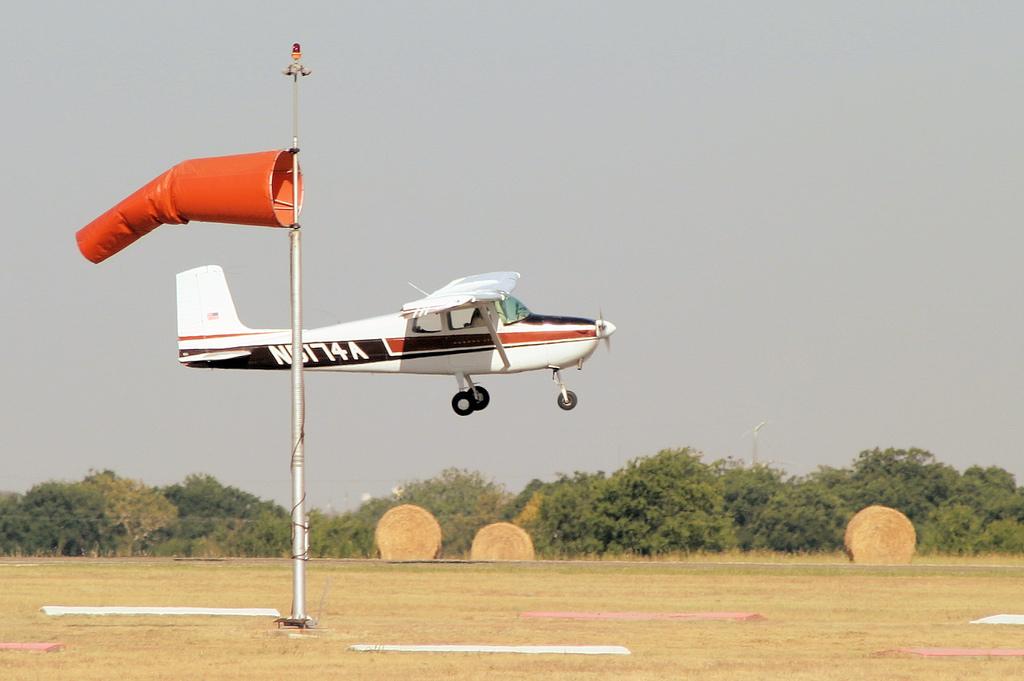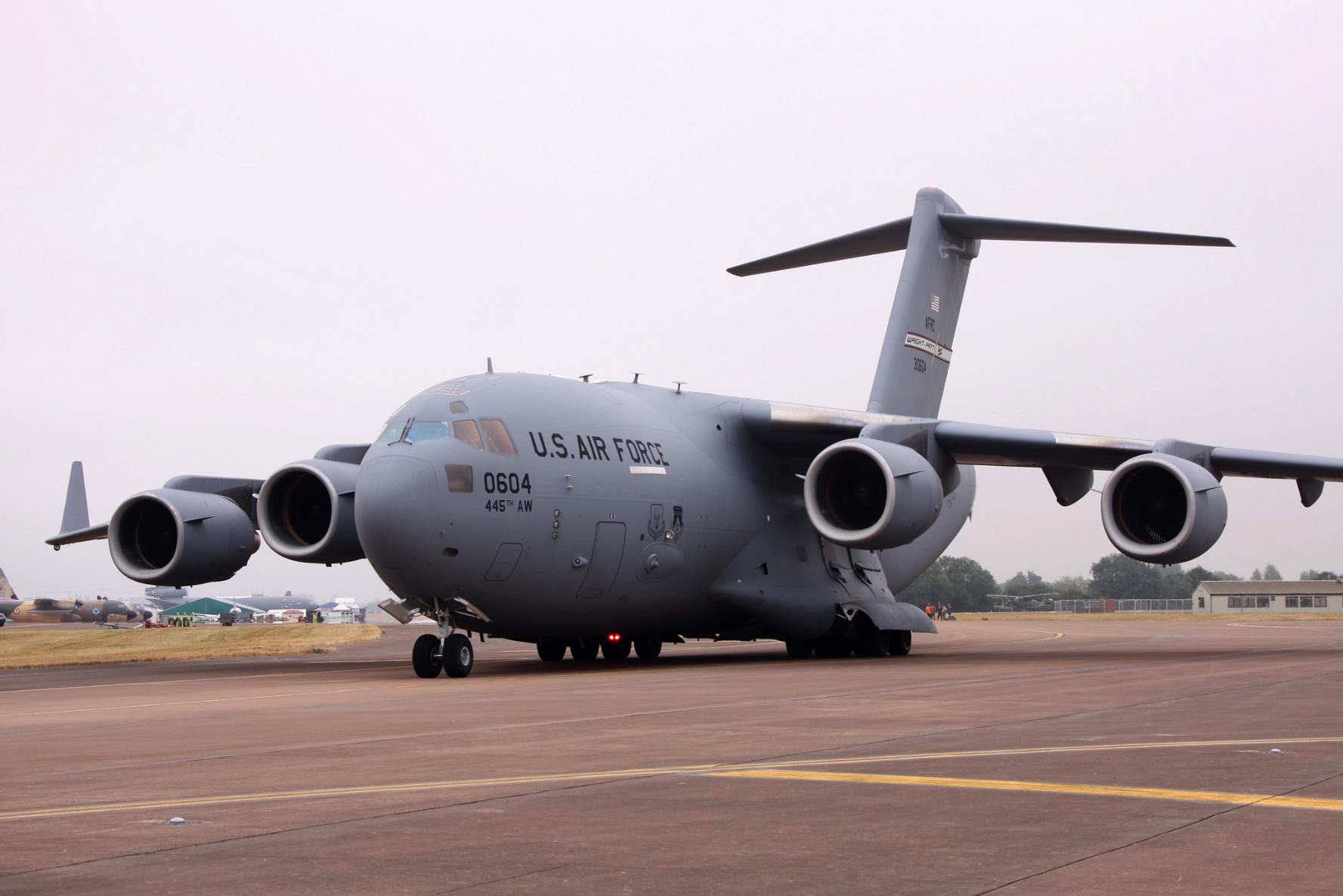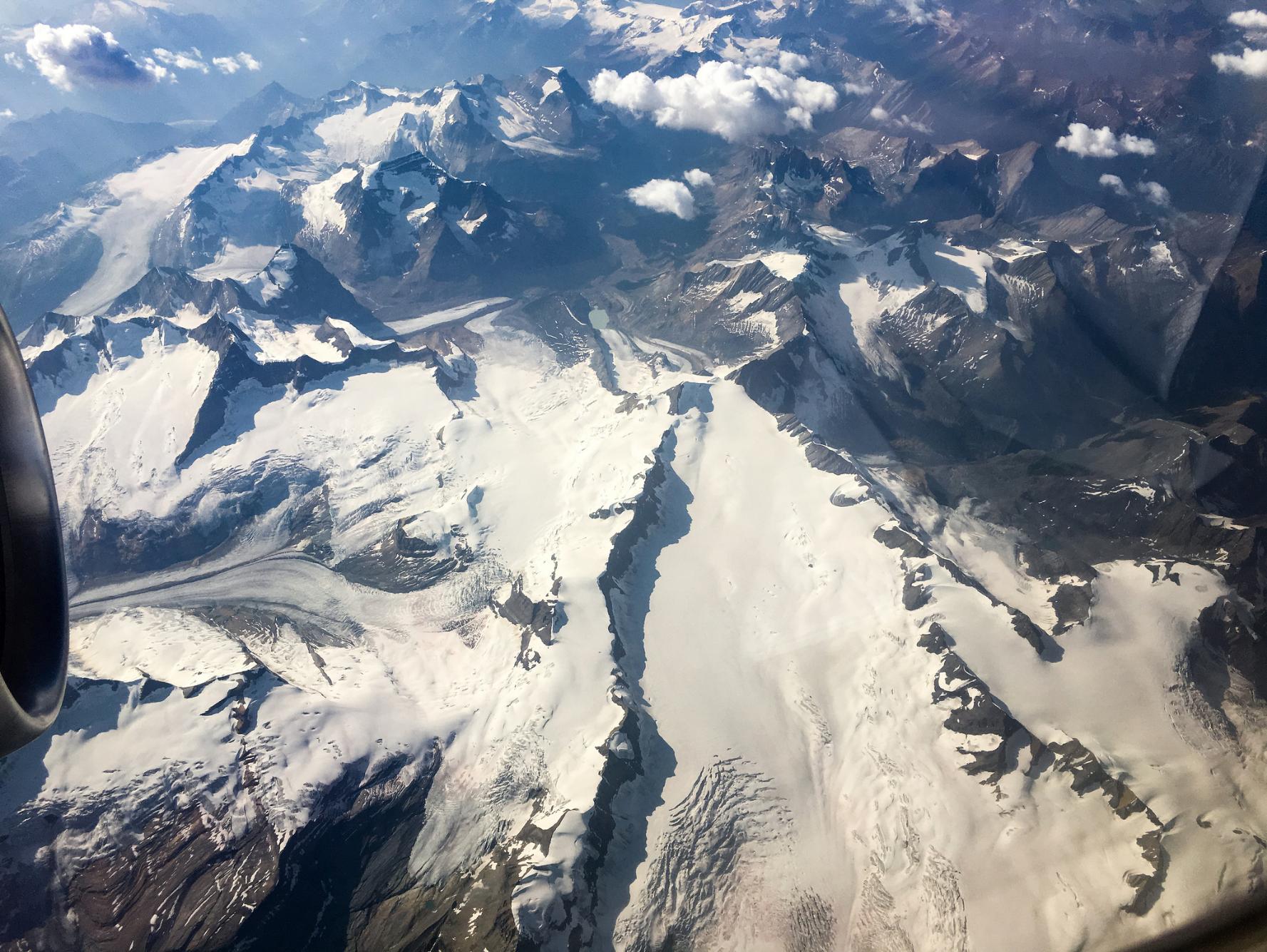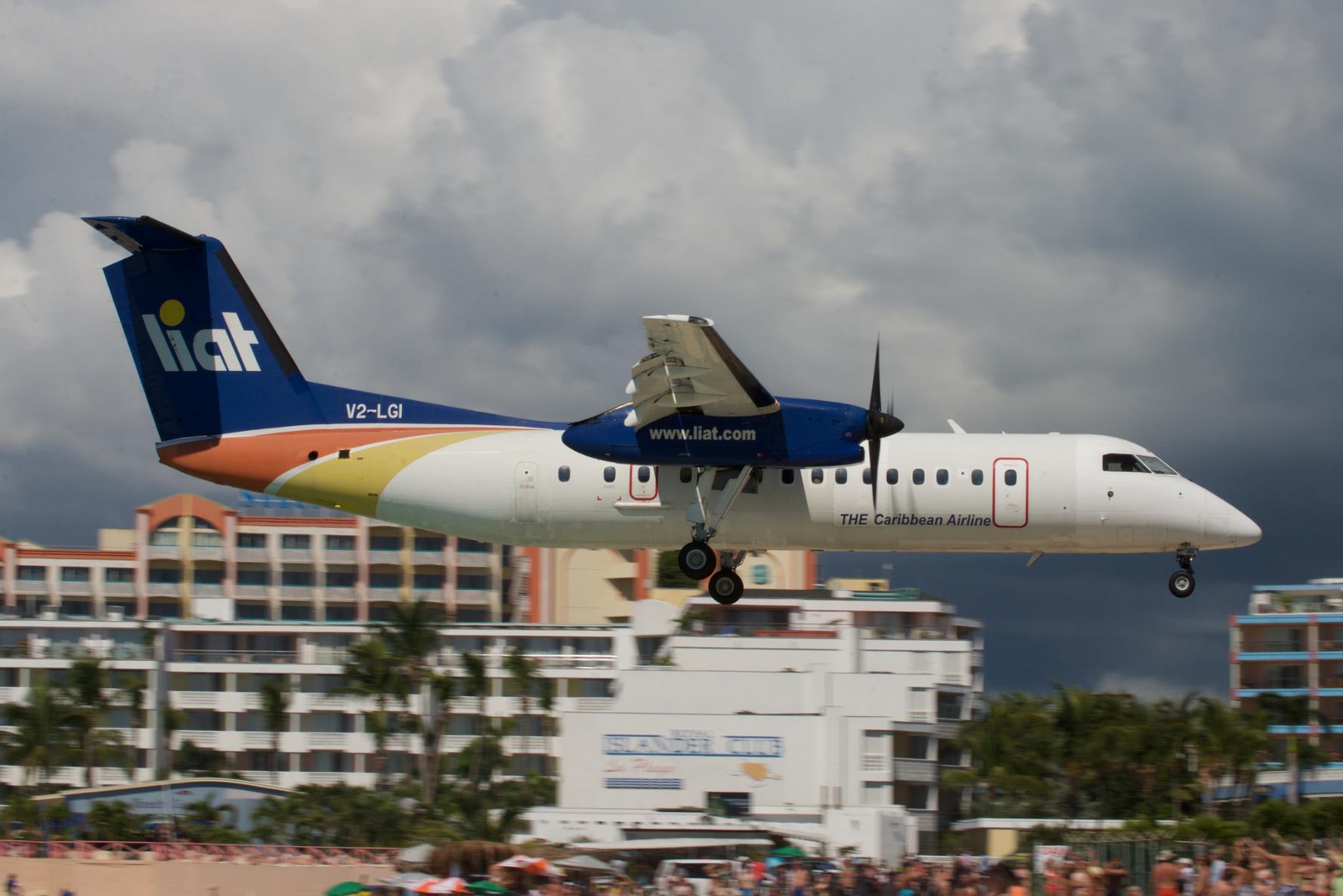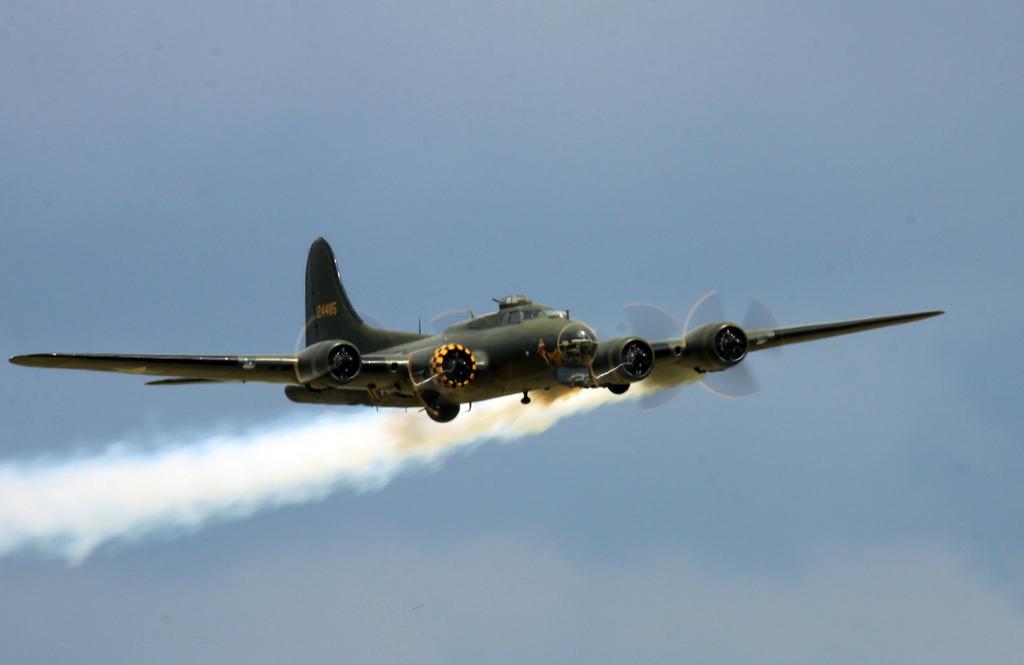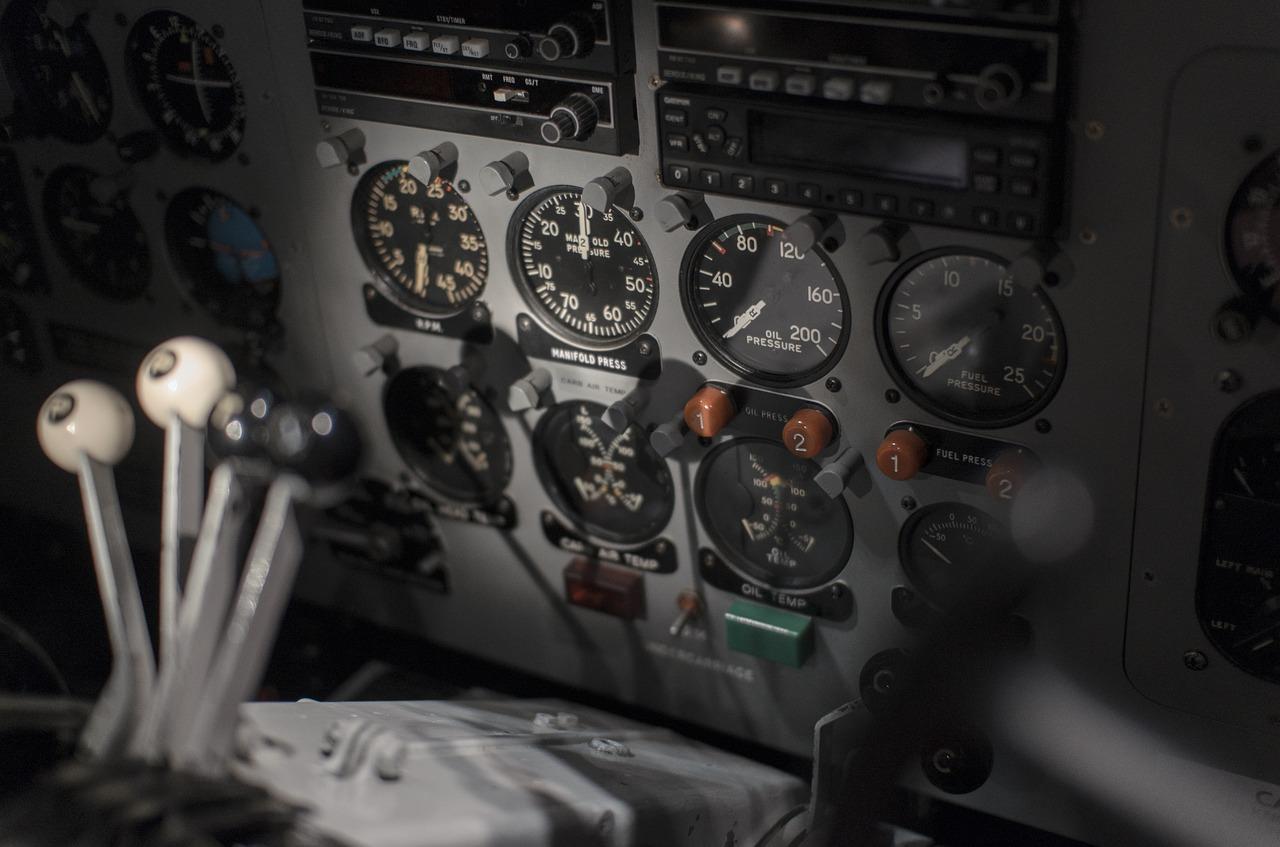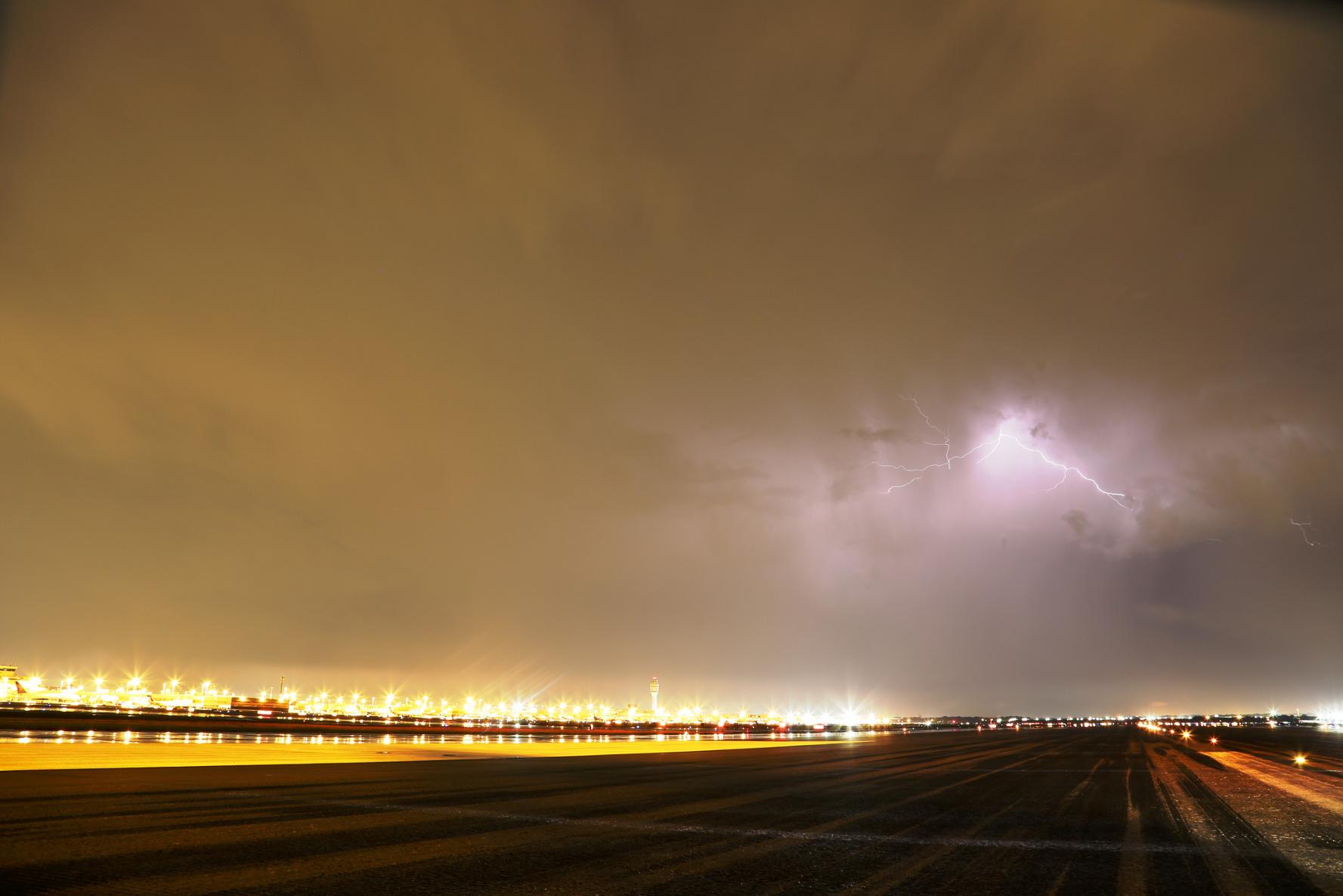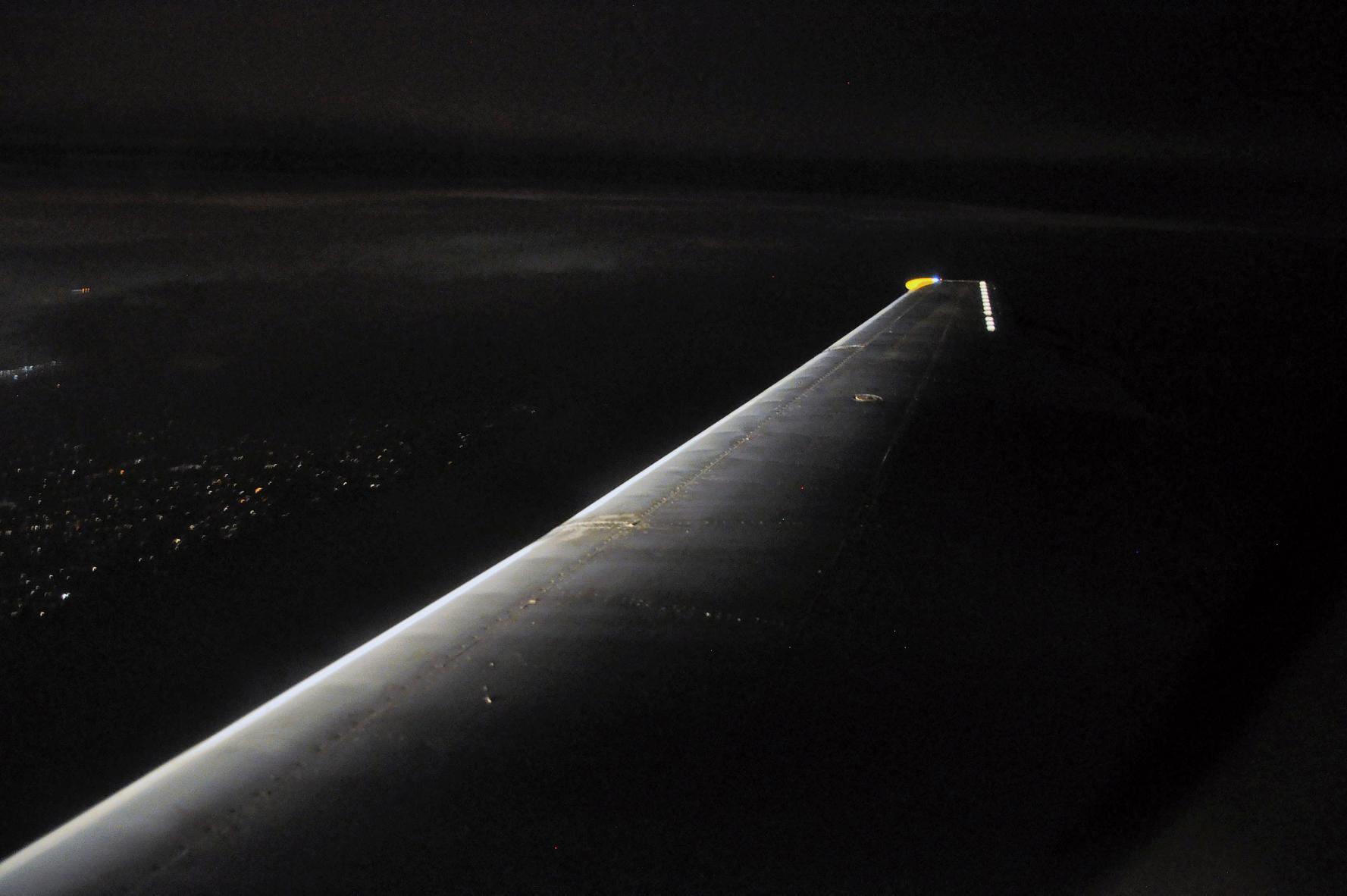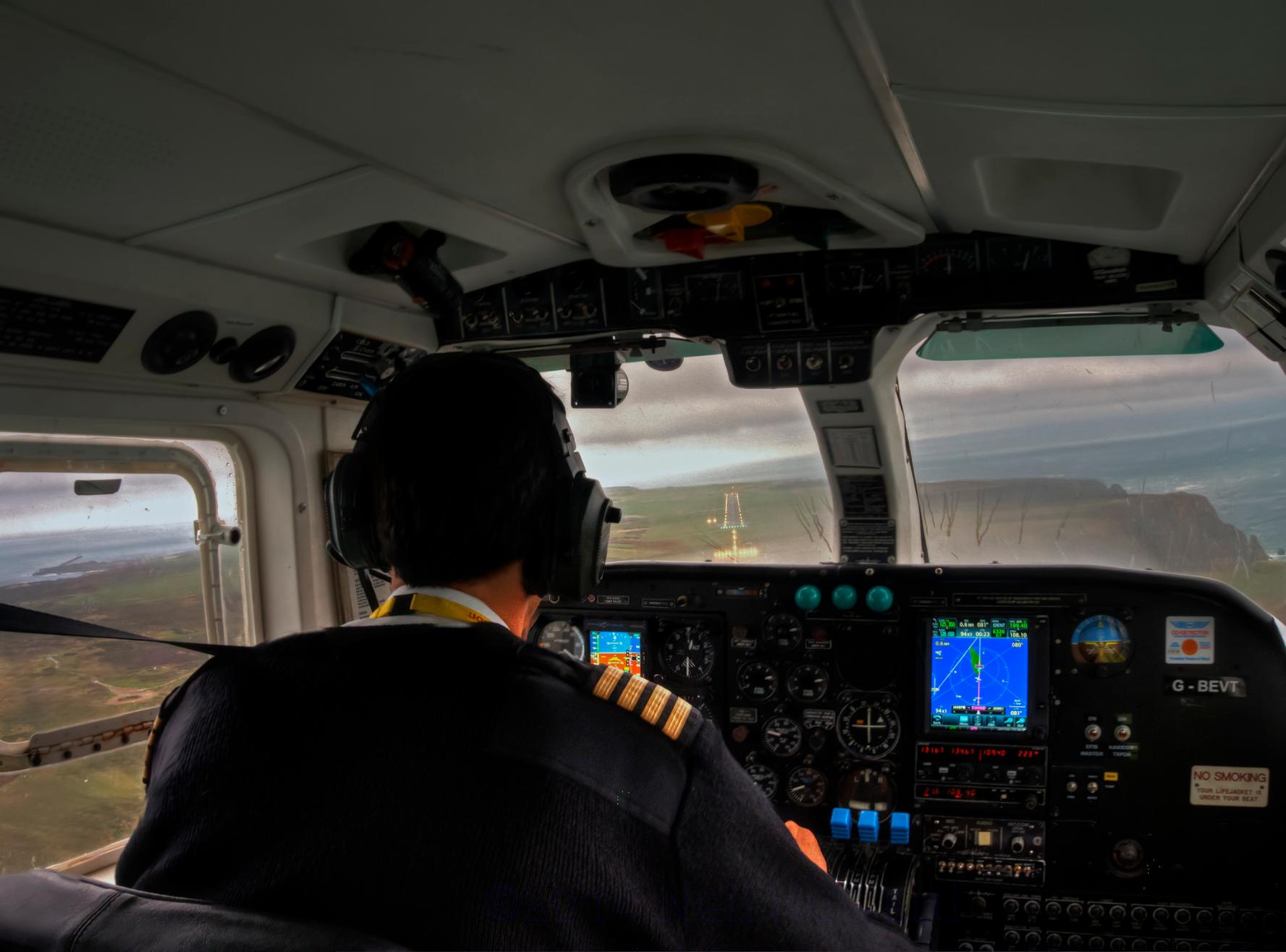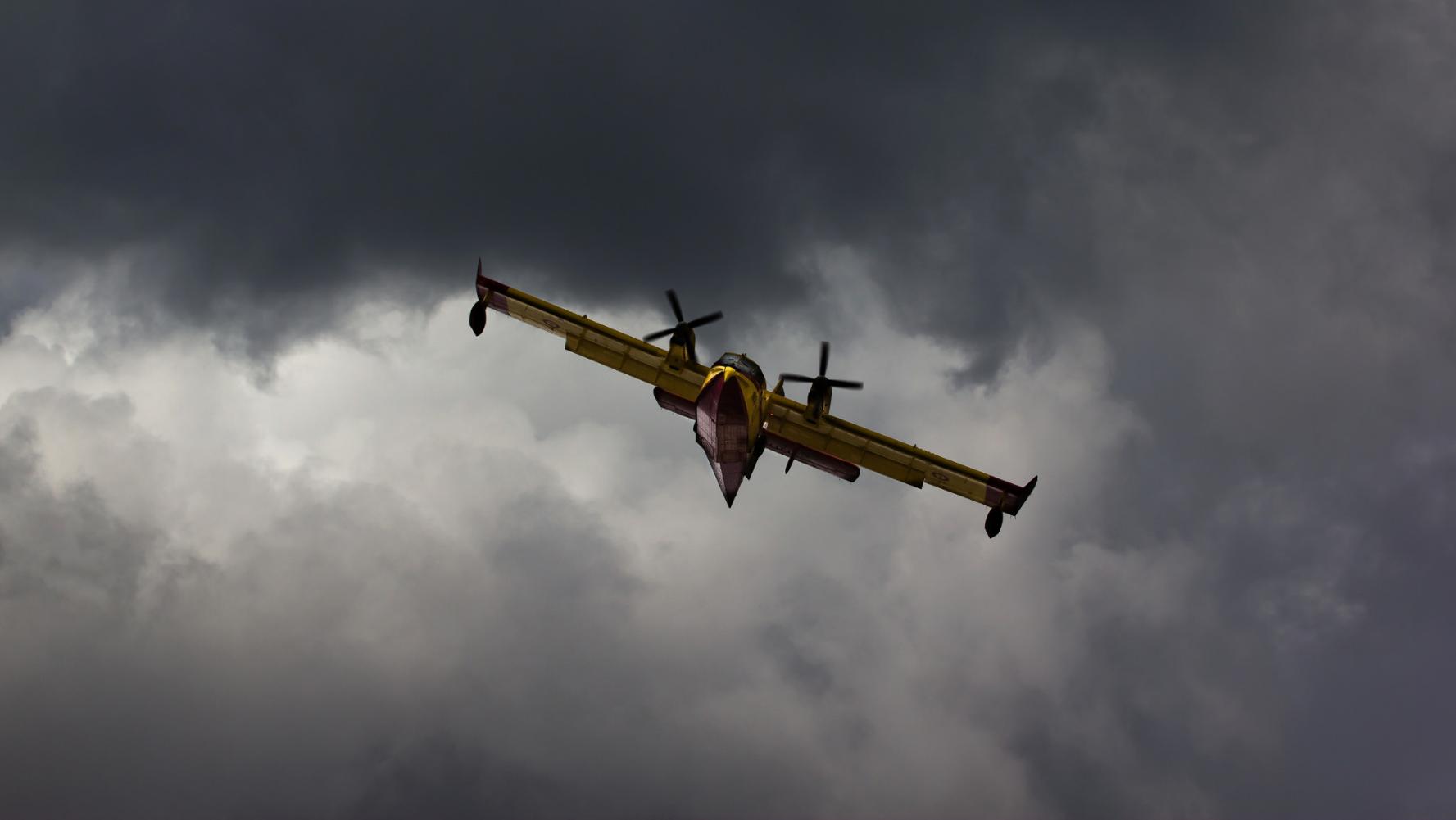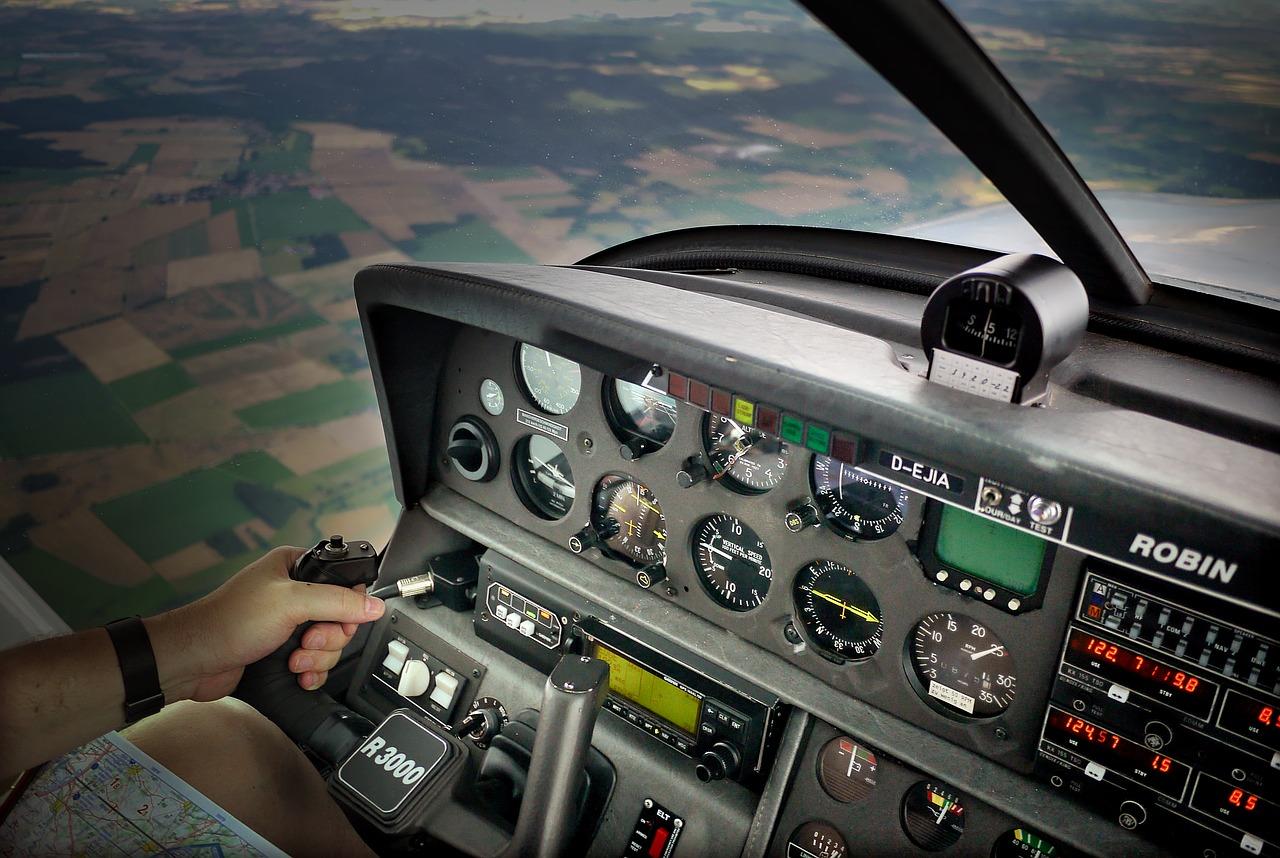The only thing more frightening than being thousands of feet above the surface of the Earth in a giant metal tube is piloting said tube and knowing that dozens or hundreds of lives are in your hands. Even pilots of small airplanes have a dangerous job fraught with many tasks to keep track of and obstacles to avoid. A single mistake can result in terror, pain or even death for the pilot, passengers, and unlucky people on the ground.
All pilots have been through at least one or two moments of absolute terror in their careers high above the clouds. Here are some stories from pilots who have survived scary moments in their careers and chose to share the story online. Hopefully, you'll have forgotten all about these by the next time you need to fly somewhere!
45. Wonder What The Expression Was
ATC (air traffic control) gave my plane clearance to take off on runway 35 (north) at airport GFK while simultaneously allowing for a similar aircraft to depart from runway 26 (west). These runways cross one another; we almost collided at 500 AGL (above ground level). The other aircraft was so close I could make out the expression on the pilot's face.
44. Terrifying Analogy
Pilot of an Airbus 320 here. Flying into a high elevation port in Asia and at 23,000 feet on descent had a TOTAL loss of electrical power. All screens went dark including standby instruments and emergency lighting. To put this into perspective Airbus designed this aircraft with three electrical generators in addition to power supplied by batteries and the emergency generator. It is designed never to be without electrical power even if both the engines failed, you ran completely out of fuel, and the auxiliary power unit is inoperative. It’s a scenario pilots don’t even train for because it's never suppose to happen.
After a partial recovery of our screens the outage was followed by 12 consecutive warnings associated with different onboard systems. We landed safely. Passengers didn’t notice a thing apart from the lights temporarily going out in the cabin.
The car analogy would be you driving at 100 kph on a highway and suddenly all your windows are covered up, you lose your speedometer and all electrical systems, and there’s no response from the brake or accelerator. But you can still feel the car going.
43. Hectic Helicopters
Airline pilot here, going on four years now. I was flying into a small Midwestern airport in the middle of summer. On approach to the airport, we received an alert by the onboard equipment to climb immediately to avoid hitting another plane. Fair enough, we climb as instructed, see the offending aircraft below us, and decide to continue the approach.
On a three-mile final stretch to the runway, we spot a wall of torrential rain rapidly approaching the field. Looks far enough away that we think that we can beat it to the airport. About 100 feet off the runway the rain hits us and we go complete white out, can't see anything out of the windshield. Immediately start a go-around, and we get as low as 20 feet before the airplane finally starts climbing. Upon exiting the rain, and at about 500 feet, we finally are able to see again, and get ANOTHER alert for a helicopter right in front of us. This time we are told to descend... All in all, the most hectic and terrifying series of events in my entire time in aviation (about 10 years total now).
42. Forced Low
I flew in clouds for a good 1.5 hours, and no turbulence for the most part. Suddenly the aircraft started to pitch up (rate of pitch overcoming what the autopilot could compensate), and within a short period of time the autopilot disconnected by itself. I took over obviously, and the changes in pitch and airspeed were quite severe. I still remember thinking, "Oooooh crap...this is NOT good!" but from there on out I was just absorbing the information of what was going on with the aircraft and doing what was needed to deal with the situation. By the time I got out of the weather I had lost over 1,000 feet, so it was quite a serious situation because of all the surrounding traffic.
41. Getting Old
I had a single engine rating, and some time in piston twins. Grandfather used to be a pilot and owned a Piper Aerostar twin, but he had gotten to the age he hired pilots to fly when needed. One of his pilot buddies had told him he was good to go in an Aerostar, and grandad asked me to meet his friend at the airport and let him take the plane around for 30 minutes or so as a refresher to the systems.
Met the guy at the plane, and he was about as old as Granddad - I never turned down a plane ride, so I sat copilot while he did his thing. I had the sudden realization about the same time the wheels left the ground that neither of us had any business flying that plane. I could tell he just was not staying ahead of the plane mentally, and I ended up taking a lot if the duties: "I'm gonna go ahead and raise the gear," "let's go a little higher than treetop," "why don't we start a slow turn back to the airport," etc.
What I remember most is just booming over treetops at wide open throttle - the ground was moving super fast. Somehow between the two of us we got back on the ground, but I think that was the moment that old pilot decided he was getting too old to fly.
40. Ash And Mountains
Military pilot here. I was on a flight leaving Sigonella, Italy. Mount Etna had been erupting for the past four hours but ATC cleared the southern sector to be free of volcanic ash. We flew directly into an ash cloud at 2,000 feet, remaining inside it for over 20 minutes. We had no luck climbing and punching out of the fume so we ended up doing an emergency descent to 1,000 feet to get out of clouds. That's when we started experiencing engine malfunctions and had to secure two out of our four engines.
Unfortunately, in Europe, ATC is not responsible for obstacle clearance and we received a vector that would have flown us straight into a mountain. We caught the error and navigated back to the field to conduct a two-engine emergency landing without incident.
39. All About Balance
I was right seat in a C172 and flying the plane while my girlfriend's dad putzed around with some stuff in the left seat. I kept having to compensate with right aileron and he said don't bother.
A couple hours into the flight, the engine sputtered and died at about 5,000 feet. The dad goes frantic and takes the plane back, yelling at me to thumb through the radio frequency book and look up the little private strip that is right below us. We had plenty of altitude and it would not have been a big deal at all to land without power on that strip.
I paused for a minute to check gauges and he went a bit out of his head and started losing it right along with my girlfriend and her mom in the back seat. I calmly handed him back the book, reached up and turned the fuel selector valve from the left wing tank to the right wing tank and the engine promptly came back to life. He had forgotten that he had set it to left tank only trying to balance the plane much earlier in the flight and we had run the left wing tank completely dry. He was so shook up he refused to fly the rest of the trip and hardly spoke to me again after that.
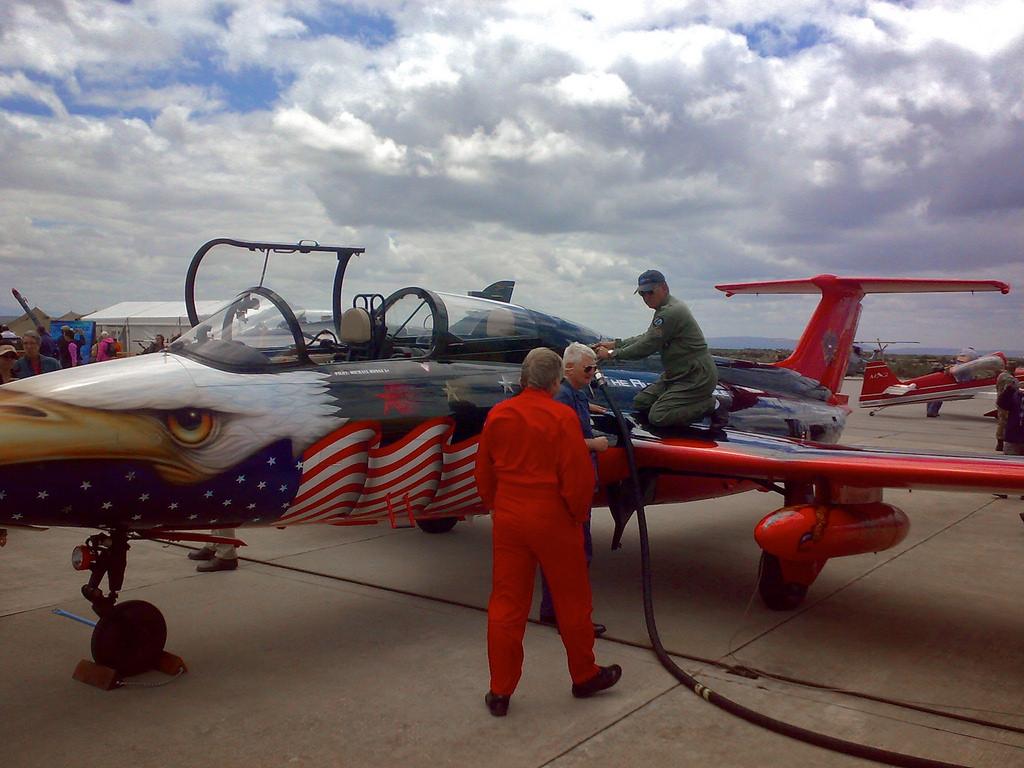 mallix/Flickr
mallix/Flickr
38. Better To Be Safe
Beginning a takeoff run. Flight was delayed and everyone was eager to get going. Going down the runway looking at the gauges... Not good. Engine RPM was not the level it should have reached in those conditions. Continued the takeoff run a bit longer because the RPMs were seeming to rise to the required levels.
Right as we reached rotation speed and the aircraft began to lift off the ground, I made the decision to abort the takeoff and cancel the flight. As soon as we lifted off the runway, I cut the power and landed straight ahead. Would we have made it? Probably. Was the engine running abnormally? Yes. Rather safe than sorry.
They all had no idea, but I had a little war going on in my head during the whole takeoff run. The scary part wasn't so much aborting a takeoff with runway running out, but knowing that if I continued the takeoff there was the possibility of an engine failure during the climb, which would have been fatal. The passengers would have had no idea.
37. Heavy With Ice
Charter pilot here. Flying a single engine plane in IMC descending to destination on a GPS approach. Not real cold and no icing forecast or reported. At about 6,000 feet I noticed ice building on the wings and windshield. It continued building up until about 3,000 feet and by then the plane was "flying heavy." This airplane had no de-ice equipment. The whole time me and the copilot are saying we hope our passengers aren't seeing this. We landed without incident and the ice had turned to slush. We are thinking all is ok, passengers didn't see anything. One of the passengers climbs out of the plane and exclaims, "That was so cool! Did you see all that pretty ice on the wings? I got several pictures on my phone!"
36. Sleeper Cells
I was flying from Boston to Columbus, Ohio, and in between us was a HUGE line of thunderstorms. In events like that, ATC will, in short, let you draw your own flight path to dodge the intense weather cells. The plane has weather radar in the nose and gives us a visual map of red "spots" to avoid. The flight was three hours long and the captain and I were spending every second of that time flying up, down, left, and right, dodging lightning and turbulence. Sweat was pouring down my face as I was using my best judgement on which direction to fly. We must have done a good job because the flight attendant called up to the flight deck to say all the passengers were sound asleep!
35. Windy Landing
We were landing at an uncontrolled airport, and I overflew the field to have a look at the windsock. It was standing straight out and indicating a strong direct crosswind. I attempted landing three times and was blown way off course each time.
The fourth attempt I was about 20 feet above the runway and the airspeed indicator was jumping wildly due to the 25-30 knot crosswind from my right. (In a crosswind approach you turn your aileron into the wind and apply opposite rudder so you are flying with your wing in the wind slightly lower than the other one.) I was tense and keeping an eye on the airspeed when all of a sudden the airspeed needle dropped to nothing! I was in a micro burst. It is the same as wind shear but at ground level. I was in a downdraft of wind that was blowing my airplane to the ground.
I pushed the throttle all the way forward in an attempt to gain some airspeed. The plane hit the runway on the main gear. Not real smooth but I was down. I was still set up with my aileron turned in the wind when all of a sudden the wind changed direction and began blowing from my left. I was still rolling about 50-60mph when the left wing raised up before I could correct the controls.
My co-worker had sensed no real sign of trouble until now. I corrected the controls for a left crosswind and looked out the right window and noticed that the right wingtip was about two feet from digging into the runway and cartwheeling the plane. After what seemed like forever, the plane settled back down on both main gear. I taxied to the ramp and could not walk when I got out. I just sat on the ground for about 10 minutes.
34. Essential Communication
I was flying a chase mission in a C182 -- the chased aircraft was also a 182. The pilot of the aircraft that was being chased (lead plane) had never flown with a chase or in formation before. I was in tight at his 5 o'clock position, he above me slightly. We started a left bank to turn around, and he descended abruptly. The turbulence from his right wing caused my left wing to stall; I snap-rolled to the left and I had to execute an impromptu Split-S. We were at 2,000 feet when it happened and I recovered with about 500 feet to spare. The chase photographer that was with me thought that I had snap-rolled and Split-S on purpose and didn't think anything of it. When we landed, I yelled at the lead pilot for about an hour for not calling his maneuver.
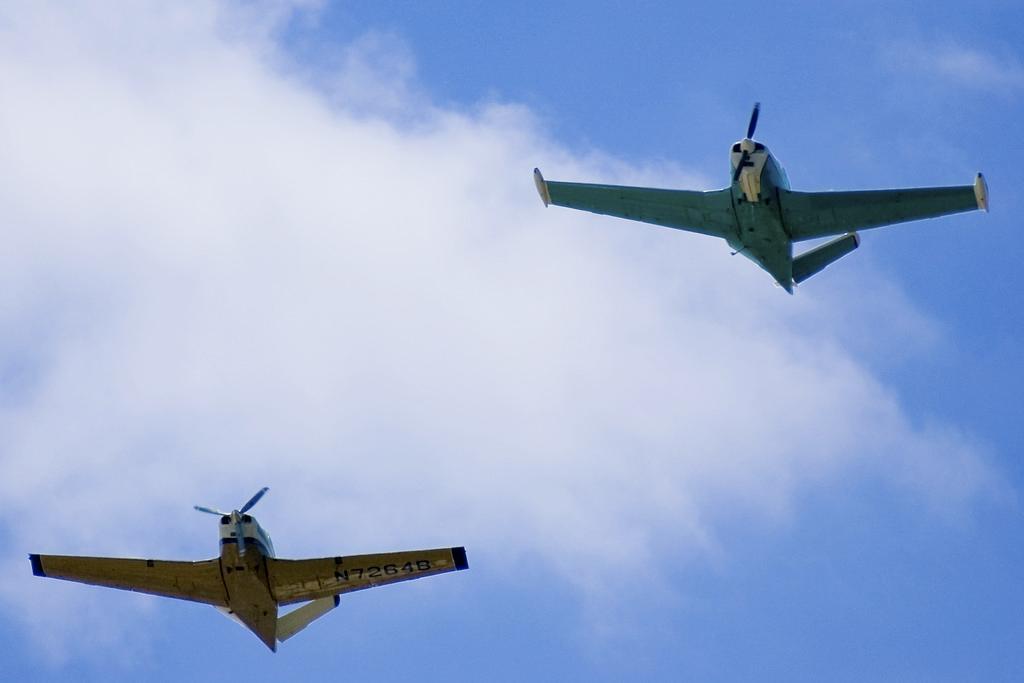 David Kinney/Flickr
David Kinney/Flickr
33. I Can See Them
I was flying into a small class delta airport and the traffic controller was using radar from the international airport a few miles out. He told me to turn and make straight for runway 9. Well, if I had done that I would've probably plowed into a formation of two other planes, so I deviated to the south a bit more and got past them before making straight in.
As I was deviating I said, "Negative, I've got a flight of two in front of me passing directly at my level." ATC decided it'd be a good idea to argue with the ONE IN THE ACTUAL AIRPLANE and tell me that I was good to go straight in because he only had one blip. Basically told him I'm the one up here, I can see two aircraft, they're right at my level so I'm going south till I pass them. He didn't try arguing after that.
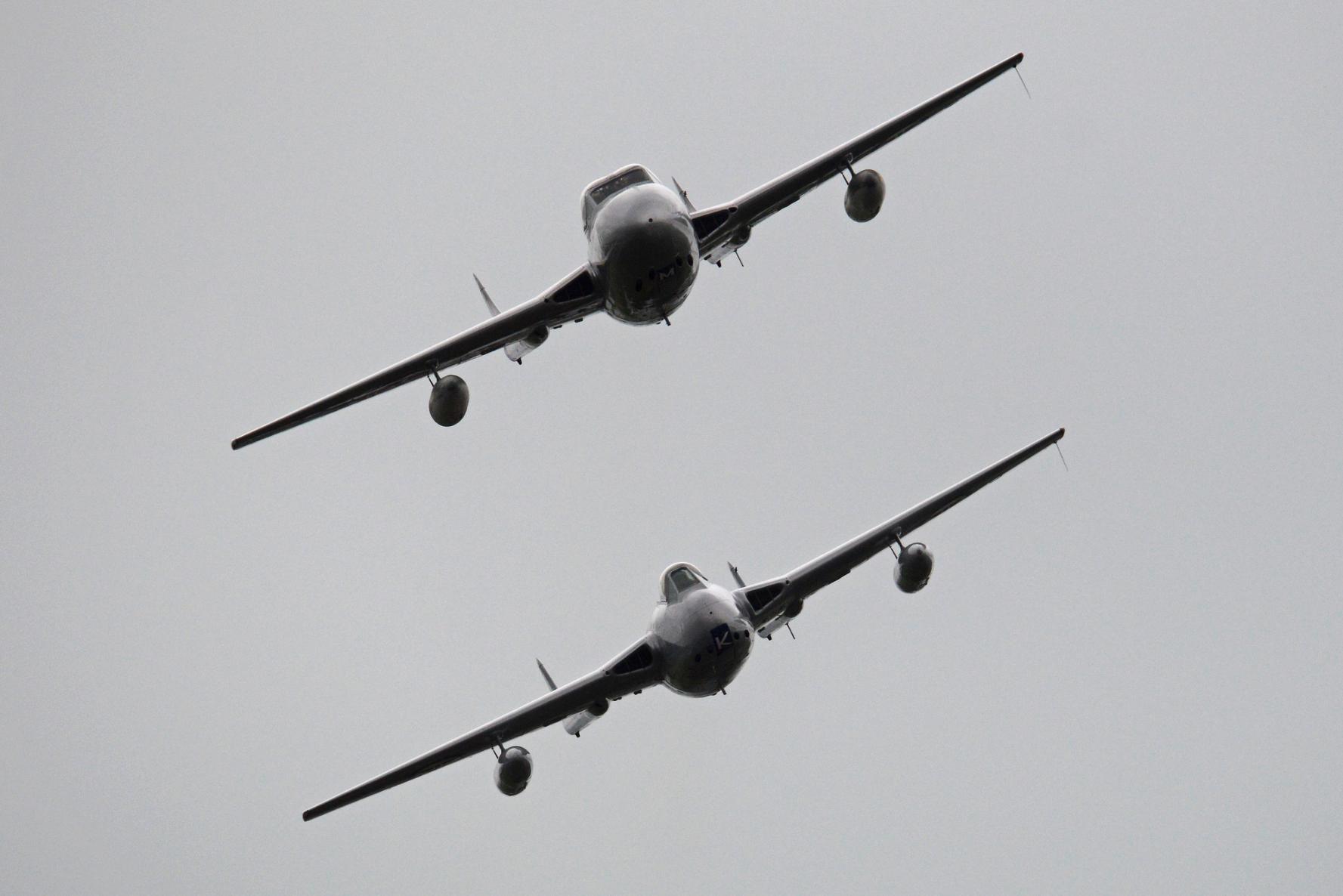 Alan Wilson
Alan Wilson
32. Lost In The Sky
One time I was flying a little Cessna with my family. We were going to go see my parents, who lived in Arizona at the time. It was around 1 or 2 in the morning and we got an alert saying we were running out of fuel. But we were in the middle of nowhere and we were actually quite lost.
The kids were sleeping in the back so they had no idea what was going on. Well, we turned on the radio to see if maybe someone would be at some airport nearby and could let us land and refuel. We didn't hear anything. 20 minutes go by and we think we're done for when all of a sudden a voice comes up on the radio saying, "Any of you boys see an airport around here?" It was a local ATC operator and he helped us find the airport to land at and then he disappeared. I'm fairly certain he was a guardian angel or something.
31. Engines On Pause
I'm a C-17 pilot. Excluding war stories, the only time I thought we were going down was at home station. I had just done a planned go-around and proceeded to level off at 1,500 feet AGL for another pattern. So I chop the throttles to idle to catch 200kts and then push a little power to maintain airspeed. The engines don't spool up. I'm now a 270,000-pound idle-power glider with 1,500 feet to work with and the runway directly behind me; it doesn't work well.
We have procedure for loss of all engines, but nothing for four engines stuck at idle. I check max, still nothing. At this point the other pilot has noticed me throwing the throttles to max and wonders why till I yell, "Engines!" and he looks at the tapes and sees max throttles and no spooling power.
The engines kicked in about 4-6 seconds later, but those were the most terrifying seconds of flying I've ever had: no altitude, no checklist, no runway. Made the next one a full stop.
30. They Knew Better
I was learning to fly in Switzerland. Here, as a part of usual training it is obligatory to do so called "alpine flying introduction" — how to fly in the mountains. The reason is obvious. I was doing my alpine intro from a small aerodrome called Raron (try to find it on maps). It was a sunny and somewhat windy day. One side of the valley was heated with sun, creating very strong updrafts, combined with a local wind phenomena called Föhn (wind crossing the Alps from South to North or opposite). Well, what we (me and the instructor) got was turbulence, throwing our small aircraft (Aquila 210) from +2500fpm to -2000fpm the next moment. It was my first mountain flying and that was a very scary experience.
Upon our return, we talked to local pilots (we were kind of visiting that place), who told us that they would not dare flying in that weather, because they know these local conditions. Good to know!
29. Student Error
The most suitable story is of a student pilot I had when I was instructing. He rotated the 172 well before it was ready to fly. As I grabbed the controls, he was aiming directly for an antenna off the side of the runway. I had to push the nose down to gain just enough speed to pop the wing up over it. As we were coming back around in the pattern, he looked at me and said, "I'm getting better aren't I?" He had no idea how close he came to killing us both. He definitely had no idea how close I was to hurting him once we landed.
28. Instrument Mystery
Commercial pilot here. During training, I was flying a Piper cub (single-engine). We had just taxied to the active runway and were doing our run-up (pre-takeoff check). Finished the run-up, everything was functioning normally, all gauges on the green. ATC advised us to hold short of the runway due to approaching traffic. Just as the approaching traffic landed and we were about to get cleared for takeoff, our engine died with out warning. Me and my instructor looked at each other thinking, what the heck? Looked at the gauges. All gauges still on the green, fuel pump on, mixture rich. So weird... Needless to say, we aborted the flight.
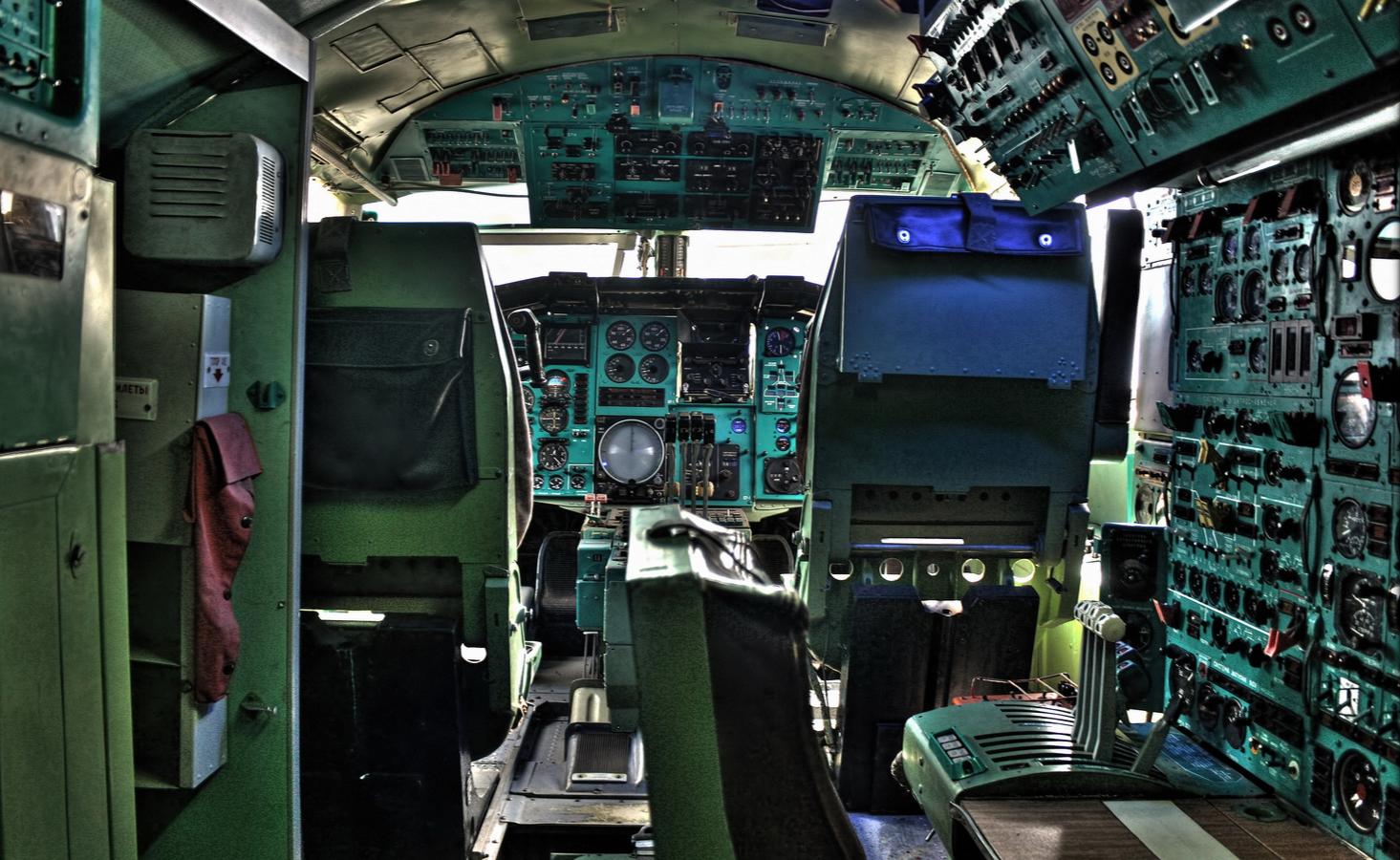 Daniel Mennerich/Flickr
Daniel Mennerich/Flickr
27. Frightening Fuel Gauge
I was flying around in a single engine Piper Sport -- it weighs about 1,300 pounds fully loaded. I took off with what I measured directly from the wings to be a solid 90 minutes of fuel for what was supposed to be a 45-minute flight.
About ten minutes into my trip, the fuel gauges reflect two gallons in my left wing, and one gallon in my right wing. I get special permission from Potomac TRACON (basically Washington, DC ATC except with missiles locked on your plane as you fly by) to turn around, and within ten minutes I'm right back near my home airport... with one gallon of fuel indicated.
I take a normal pattern approach and on short final with my airplane's equivalent of GLADOS in my ear telling me "Fuel Critical," and I get slammed with a gust of wind that pushes me sideways. Of all the times I could not afford to just go-around, I had to go-around.
So I gassed it one more time, climbing to the highest altitude I possibly could just in case the engines cut out. I radioed to UNICOM for all aircraft to depart the pattern, possible engine out failure, this is NOT a simulation. But on my return to final approach I was coming in too high requiring a very difficult airplane maneuver called The Slip. That's where your plane is flying towards 12 o'clock, but you turn the airframe so that the nose faces 3 o'clock. By becoming less aerodynamic you can "air break," however it is REALLY easy to mess up and enter a tailspin. At 800 feet that's guaranteed death.
Well I stuck the landing and after changing my underwear told the story to the flight school I was renting from. They then told me that one of the fuel gauges in the plane was busted.
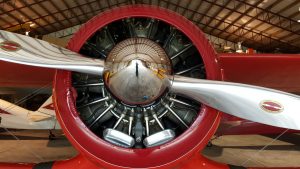 Pixabay
Pixabay
26. Explosive Engine
C90B, left engine temperature kept rising, and fuel indicators were going crazy. It fixed itself in about 30 seconds, and to this day I don't know what caused it or even what the issue was. I thought I was about to have an engine blow up.
25. Landing In The Dark
About a year ago I flew around 150 miles into Dallas for dinner with a friend. On the way home at about midnight I notice the alternator isn't working. For some reason I didn't have much concern about it.
Well, a few minutes later I lose all power. No big deal, I got my garmin 496 and there is no traffic around, only about 20 miles out of destination. The problem came when I got to the airport. The tower was closed and all the freaking lights were off, and I have no radio to turn them on.
Okay, I got this, I use the garmin to line me up on final and start a descent into a black hole. After a pass that I abort, because it's terrifying descending into a black hole, and I remember that the other runway has a PAPI. I ended up landing on the second attempt using the PAPI and the garmin. I couldn't see a thing, but managed to softly touch down and then proceed to slam on the breaks because I had no idea how much runway I had used up. Cops were waiting for me at the ramp. Fort Worth center had called them. Said they had sat there and watched me try; could have turned on the lights, buttholes!
24. Approaching Without Instruments
I fly into mountainous areas in a twin turbo-prop. On an approach, moderate icing, blowing snow, moderate-severe turbulence, can't see as it is, breaking action being reported as poor, single pilot. Basically I got my hands full. But then, just as I pass the final approach fix (point of final descent to the runway), my airspeed indicator starts reading erroneous values. I verify the pitot heat is on (this heats the probe that senses airspeed) and flip on the alternate static source (a backup probe that reads ambient air pressure -- needed for some instruments). But now, my altitude is reading 500 off, and I'm just trying to fly the glideslope (vertical path to the runway) in the turbulence. Broke out at minimums (I think, based on my new altimeter values), landed and stopped by using the reverse thrust.
This is something I've been trained for. But with the turbulence beating me up, the thought of mountains all around, the icing, and other factors weighing in, I can safely say I was stretched to the limit of my abilities. It took every ounce of my brain to fly that approach and land.
23. Big Bumps
I was flying to Nashville from Youngstown at FL280. There wasn't an auto pilot on board so I was hand flying. I was just lost in the gauges and hit the most incredibly clear air turbulence I've ever experienced. The VSI was showing +/- 1000 ft with every 'bump.' We hit the ceiling so hard my head cracked the headliner plastic and the copilot was seeing stars and in shock. The cabin was a mess and our lone passenger was white as a ghost. The oxygen masks fell and the seat cushions were all over the place. They were floating for what seemed like minutes as we were literally out of control. I sincerely believed we were going to have an in-flight breakup and lose a wing.

22. Wheels Up, No Fire
My granddad was a captain for Pacific Western Airlines for about 30 years. At one point in his career he was a check pilot teaching students to fly a locheed electra (4-engined 80-passenger plane). On one flight there was a malfunction with the landing gear which prevented it from deploying. My grandad was able to notify emergency services of the issue and what they ended up doing was completely covering the landing strip with fire retardant foam to try and prevent the plane from exploding in the likely event that the plane caught on fire on impact.
Unfortunately it was a really windy day and the foam kept blowing away! They decided the best course of action was to circle around until the plane was running on fumes, at which point they would attempt a wheels up landing. Being the awesome person that my grandad is, he managed to land the plane without anybody sustaining any injuries. The plane was written off and the runway was severely damaged but everybody was ok!
 Gary Danvers Collection/Flickr
Gary Danvers Collection/Flickr
21. Below Roof Level
I was still doing my initial PPL training with an instructor. We decide it's time for me to do under-the-hood training. Under-the-hood is where they put a visor on you so you can't see out the windows, and you just fly with your instruments. Kind of like a precursor to IFR training and night ratings. Anyway, I did the weather calls in the morning and there were foggy patches about 50km west of the city. The weather guy I conferred with figured "Ahhhhh it'll probably all burn up by the time you take off," being that take-off was set for 10:00am.
So I do my pre-flight check, sky looks fine. It's a pretty low ceiling, and visibility isn't great, but not too bad to be doing regular VFR training. Basically it was perfect conditions for me to be doing under-the-hood training! So we get in a pretty good hour-long training session. I get to feel what it's like to be completely sideways and in a fall but still feel like you're right side up. Neat stuff.
The training is nearing its ending for the day and my instructor asks me to take off my visor... PEA SOUP. There was a layer of fog about 900' to the ground. We could see a couple skyscrapers from downtown peeking out through the fog, and that was it! That's all we had for landmarks.
So as we're heading back to the airport, we had to request special VFR. Special VFR is where you're allowed to operate below the regular VFR levels, so instead of doing a 1000' circuit, we would head into the city at 500'. Fun right??? YOU BET YOUR BUTT IT WAS. Like I said, pea soup. Couldn't see anything. We're diving in through the fog, and "Oh man we're close to that building." We were below some of the roof levels of buildings we were passing on-route to the airport.
20. Swearing And Flaring
I was co-piloting a glider as a student. The weather was slowly turning nasty, but we decided we could get one last flight in before the front came in. We were towed up like usual, hit the cable release and glided with no problems. We circled around the airstrip and came into the approach pattern.
At that point I was pretty confident, and the pilot knew this and was fine with me doing the landing. Well about 100 yards up a cross wind nearly blew me out of the sky and the pilot yelled "I GOT THE AIRCRAFT" (meaning I should relinquish control to him). As he turned to align with the runway, the turbulence picked up and was out of control.
The craft just wanted to do its own thing. Albeit we landed safely after a lot of swearing and flaring (special flaps used to control glider decent), but that was the last flight of the day.
19. Dark, Darker, Darkest
I've flown under night vision goggles plenty of times even in low illumination. However, there was always a town nearby putting out ambient light. Even if there are clouds blocking the moon and stars that ambient light will bounce off the clouds and illuminate everything. The first time I flew in a mountainous desert with no lights, we had a low solid cloud deck and it was DARK.
I had trouble telling the difference between clouds, the ground, and mountains. My focus on trying to see the mountain so I wouldn't fly into it was so intense that I started descending without realizing. We were already low and going fast. Out of nowhere I heard "altitude low, altitude low." We refer to that little voice as "Badmouth Betty" since she's usually annoying when it's time to land. I immediately pulled in power and stared climbing. If it wasn't for her I'd be in a burning heap in the desert.
18. Bingo Experience
I was a beginner pilot, only 17, on my first ever solo flight in a very small Cessna 152. After takeoff, I climbed to my set height, I started heading off to my first nav point, and begin doing my checks. One of the things to do was to turn off the fuel pump after takeoff. Very slowly the revs dropped until the engine stalled and the prop was just spinning in the wind.
I immediately panicked and turned around and pointed it back to the airport. I started doing all of my pre-landing checks and was coming straight into the runway with very minimal radio contact or procedure. My only goal to get on the ground (lucky it was a very quiet, rural airport).
Partway through my landing checklist, I turned on the fuel pump again and the engine almost immediately sprung back to life. Great I thought, now just get back on the ground. Landed roughly, taxied just off the runway, shut the engine off and got the heck out. Found my instructor and could barely talk, babbling to him, trying to get out what had happened.
17. Canopy Mishap
I was flying a single-seat type with side-hinged canopy. The latch failed, and the canopy impacted the right wing, damaging aileron at near VNE, though thankfully going uphill. Declared a mayday though nobody could hear me due to wind noise. Wasn't wearing sunglasses (now I always do) so the world was very blurry. Landed ok and I was a happy chappy after that.
16. Taking Off Over Us
Commercial pilot, not for the airlines, but fly small planes and had passengers with me. Approached for landing at a familiar airport that was uncontrolled (no ATC). Pilots should announce their positions and intentions, but it isn't required by law. I started announcing my position 10 miles out, and gave a lot of updates while I was inbound about my direction, position, and intention to land on a particular runway. No one else was on the radio frequency, so I landed. Just after landing, another airplanes takes off over my airplane going the opposite direction. I checked my frequency to verify I had the right frequency tuned. I did, and I chewed the guy out over the radio, and there was no response. He may not have been on the right frequency.
15. Just Hold It Closed
I fly Cessnas, so my passengers aren't oblivious to anything. But the worst thing that happened was one of the window's latches broke mid flight. Duct tape would hold it so I asked the passenger, who was a good friend, to hold it closed as best he could. We landed fine.
14. Slow Solo
It was my first solo flight. Takeoff was fine, flight was great, the approach to landing seemed okay -- until I was about 20 feet off the ground. That's when I realized that I was going way too slow and on the verge of stalling. I suppose training kicked in and I safely aborted the landing. I had to go around and do it all over again, but once I landed the second time round I experienced the biggest sense of relief and excitement I've ever felt.
13. Accidental Elbow
I was flying a B737NG airliner. During our climb, the cabin failed to pressurize. The second I heard the alarm sound, I dived for the oxygen mask lightning quick. So quick that I elbowed the control column which disengaged the autopilot. Not my finest moment.
12. Useful New Gadget
My dad and I were flying between my college and my hometown (50 nautical miles). The rented 172 had a new, fancy gauge we had never played with. It tracked other planes in the sky and gave you a general altitude difference, and showed kind of what direction they were in. He was flying, I started looking at it and saw a blip. It was 1,000 feet above us, so we were good.
I took over flying (VFR, through mountains, great vis) as my dad started noticing the other plane was heading right at us and descending. We called about 928,473 times trying to get ahold of him as we couldn't see him visually. Last second, I spotted the plane heading FOR US and we dove/banked out of his way. I mean, literally a couple seconds before collision. There was no passenger aboard. He was waring Aviators, DC headset (classic green), and a black polo. He was completely unaware.
11. Explosive Engine
I was flying a C90B. The left engine temperature kept rising, and fuel indicators were going crazy. It fixed itself in about 30 seconds, and to this day I don't know what caused it or even what the issue was. I thought I was about to have an engine blow up.
10. Approaching Without Instruments
I fly into mountainous areas in a twin turbo-prop.
I had this one awful approach -- moderate icing, blowing snow, moderate-severe turbulence, couldn't see as it was, breaking action being reported as poor, single pilot. Basically, I had my hands full.
But then, just as I pass the final approach fix (point of final descent to the runway), my airspeed indicator starts reading erroneous values. I verify the pitot heat is on (this heats the probe that senses airspeed) and flip on the alternate static source (a backup probe that reads ambient air pressure -- needed for some instruments). But now, my altitude is reading 500 off, and I'm just trying to fly the glideslope (vertical path to the runway) in the turbulence. I broke out at minimums (I think, based on my new altimeter values), landed and stopped by using the reverse thrust.
This is something I've been trained for. But with the turbulence beating me up, the thought of mountains all around, the icing, and other factors weighing in, I can safely say I was stretched to the limit of my abilities. It took every ounce of my brain to fly that approach and land.
9. Punishing Storm
I was leaving Leesburg, FL in an air ambulance Lear 25, and we were racing a storm out of the area. We were cleared for take off and started the roll. The storm caught up to us and the front hit us like a train. The aircraft weathervaned and we were blown off the side of the runway. We were now committed to getting airborne but were screaming toward a tree line at 130mph. The plane successfully cleared the trees only to fly directly into the storm at low and slow altitudes. We immediately hit severe icing and the windscreen and nacelles instantly took on about 1/2 to 3/4 inch of frost. The only thing that saved my butt that day was the over-powered CJ610 engines.
8. Dark, Darker, Darkest
I've flown under night vision goggles plenty of times, even in low illumination. However, there was always a town nearby putting out ambient light. Even if there are clouds blocking the moon and stars, that ambient light will bounce off the clouds and illuminate everything.
The first time I flew in a mountainous desert with no lights, we had a low solid cloud deck and it was DARK. I had trouble telling the difference between clouds, the ground, and mountains. I got so focused on trying to see the mountain (so I wouldn't fly into it) that I started descending without realizing -- and we were already low and going fast. Out of nowhere I heard "altitude low, altitude low." We refer to that little voice as "Badmouth Betty" since she's usually annoying when it's time to land.
I immediately pulled in power and stared climbing. If it wasn't for Betty, I'd be in a burning heap in the desert.
7. Accidental Elbow
I was flying a B737NG airliner. During climb, the cabin failed to pressurize. The second I heard the alarm sound, I dived for the oxygen mask lightning quick. So quick that I elbowed the control column which disengaged the autopilot. Not my finest moment.
6. Like Bullets
I have flown through a cloud of birds. Once, just finches. Little tiny guys, about 100+. It was scary because I was in a single seat turbo prop aircraft and they could have gone through the cockpit and struck me. At the speed I was going they didn't look like birds, just black bullets. It is exactly like a movie from WWII, just black rain going by. I had to fly home afterwards for fear of wing dents from bird strikes.
5. Already Found It
I was on a flight from Van Nuys to Las Vegas, flying there with a couple of other people that had never flown in a cabin-class piston twin. Both passengers were white-knuckle fliers.
About 50 miles south-west of Henderson, we hit a downdraft that pegged the VVI at about 6000 fpm down; in other words, the nose was pointed straight down and we were at about -1 Gs for a few seconds. I threw out the spoilers and slowly leveled off. After that, we got an ATC call for "moderate to severe turbulence." I returned the call with "Thanks -- I found it."
I didn't tell the passengers that we had just hit one of the worst turbulence episodes I had ever seen. When we landed, one passengers asked me if that had ever happened before. I replied that it happened all the time, and that there was nothing to be worried about. She smiled and said, "Oh, good. I was worried that we were going to die."
4. The Sky Is Not That Big
Commercial pilot here. Not at the airlines, but I did have a passenger. Working with a newer pilot we were flying a VOR approach into a smaller airport. We were on with center (en route control) and were cleared into the airport with no other traffic in the area. We're flying in the clouds and once we get to about 10 miles out we started announcing on the CTAF (airport traffic radio). No answer. About 3 minutes later right after a radio call we broke out of clouds on the approach about 2 miles out. Just in time to see another aircraft opposite direction entering the clouds about 100 yards off our right wing.
Someone was trying the 'Big Sky' theory and not talking on the radio. Scared the life out of me.
3. Punishing Storm
I was leaving Leesburg, FL in an air ambulance Lear 25, and we were racing a storm out of the area. We were cleared for take off and started the roll. The storm caught up to us and the front hit us like a train. The aircraft weathervaned and we were blown off the side of the runway. We were now committed to getting airborne but were screaming toward a tree line at 130mph. The plane successfully cleared the trees only to fly directly into the storm at low and slow altitudes.
That meant we immediately hit severe icing and the windscreen and nacelles instantly took on about 1/2 to 3/4 inch of frost. The only thing that saved my butt that day was the over-powered CJ610 engines.
2. Straining For Pitch
I'm descending into Ft. Myers when the autopilot disconnects. What do you do when the autopilot disconnects? You reconnect the autopilot. It disconnects again. I grab the controls and they are extremely heavy and getting heavier. We could turn the airplane just fine, but it took me putting my feet on the dash to control the pitch (up and down). We ask for a long approach (it's a long runway in Ft. Myers), and controls are still heavy, but there's little wind and nobody notices.
As soon as we get over the runway, the control column freezes entirely. No up or down. We flare (pull the nose up) with electric trim and make a halfway decent landing. The only thing the passengers may have noticed was the nose wheel came down a little harder than usual, because we couldn't control the rate at which it dropped after the main tires touched.
The airplane sat grounded in Ft. Myers for a month while they tore it apart looking for the problem. They found nothing. Finally decided it must have been ice freezing the cables somewhere which later thawed, but we never bought the explanation. It should have gotten better as we descended into warmer air, not worse.
1. First Time For Everything
This would be more from my Dad's perspective. Midflight (in a little Cessna), he says to me, "I have good news and I have bad news." I say, "Ok, good news?" His answer was, "Well, there are plently of fields for us to land at. The bad news is I have no idea what's wrong with the plane." Turned out that for the first time in his 30+ years of flying, he had carburetor ice. He flipped some switch and everything magically got better. But he managed to hide his worry from me for quite a while. I had been wondering why he was pressing more buttons than usual.
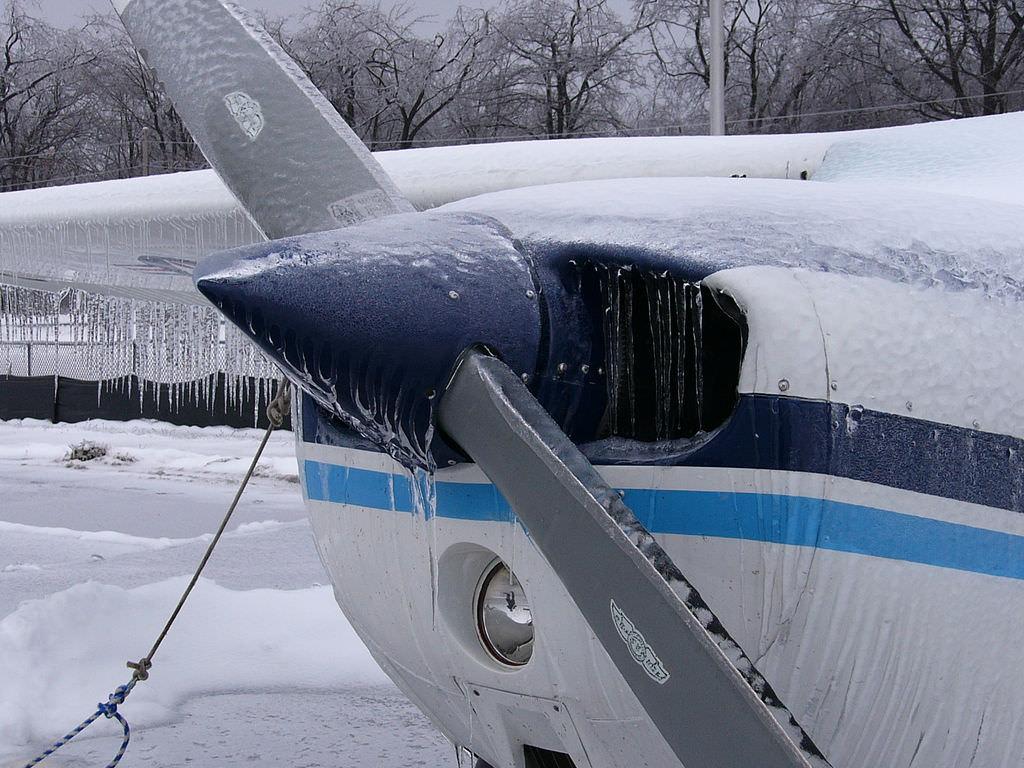 David Fielding/Flickr
David Fielding/Flickr


